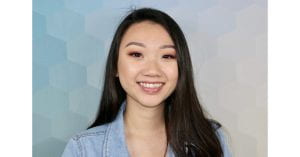
Blonde Hair and Blue Eyes
When I was younger, I didn’t know what stereotypes were. I didn’t know what racism was, or how discrimination can refrain someone from getting a job. Growing up, I was never taught that I was a minority, and that there were consequences to being one. The differences between opposing cultures never existed in my imagination. Until one day, I realized that I wasn’t treated the same like my peers at school. At just 7 years old, for the first time, I experienced discrimination. In elementary school, I remember being the one of the two Chinese student in my class. I didn’t have short blonde hair or glistening blue eyes like my classmates. My parents did not speak English as well as theirs, so they couldn’t communicate with my teachers properly. It struck my young, growing, self-conscious that I wasn’t white like my peers. At first, I didn’t think there was a difference between me and my friends. We talked, we laughed, and we bonded during recess. However, just because I was oblivious to our differences, did not mean my peers were. I was asked ignorant questions that I thought were to get to know me better. People would ask “where are you from?” and unknowingly, I would answer from “Concord, California” but they would correct me, “No no, I mean where are you really from?” I even remember my 5th grade teacher screeching at my “abnormally small feet”. She had asked me if my parents practiced footbinding on me. Not knowing what my teacher meant, I didn’t give her an answer. After school, I started asking my older sister what footbinding was because my teacher thought I was practicing it, and she started crying. She explained that it was an old Chinese practice, where women had their feet wrapped, causing every bone in their feet broken and deformed, to satisfy beauty standards. I replayed my teacher’ voice in my head as I stared at my feet, telling myself that they were “too small”. Her false accusation was a punch to the face and I realized that, I wanted bigger feet like my friends so I wouldn’t be made fun of. It was a moment where at just 10 years old, for the first time, I experience prejudice. Additionally, the more I was exposed to discrimination the more I felt obligated to conform to a whiter identity in order to fit in. I started to degrade my race and even turn against it. For instance, I grew up always and only eating Chinese food until I was introduced to school lunches. There was a time where I told my mother the chicken nuggets and teriyaki chicken were tiring to eat, so she decided to make me lunch for school. I was so thrilled to eat what my mom made me. She prepared one of my favorite Chinese dishes, Lo Bak, which is braised pork belly in soy sauce, packed with white rice. I remember the disgusted look on the girl next to me’ face as I opened up the lid of my tupperware, releasing a strong aroma of well-seasoned meat. A piercing voice squealed, “What is that smell?!” It was so loud that it echoed the small classroom. I look up, and all eyes are turned on me. I quietly answered, “It’ my lunch. ” Once I described it was pork belly, gagging sounds and embarassed faces were made by my classmates. Pork belly, is also known as a very popular breakfast American food, bacon. But of course, my classmates didn’t know that. Their disgustment discouraged me so much that I didn’t even want my food anymore. The embarrassment I felt was like standing unprepared in the face of a hurricane. As a result, I succumbed my dignity to fit in with my peers. I put my food away, with a reaction of revolt. I acted like I hated the smell, even though I didn’t. I felt disgusted with my own culture, questioning how can something be so gross. I allowed people’ reactions shape how I felt about something that I loved, and as a result, created a fallacious reaction for their acceptance. As an Asian American, I’ve realized that it is important to be knowledgeable about your heritage. Once you start to degrade your own culture, the more it’ll permanently erase from your memory. When I was younger, I chose to speak English than Chinese because I was embarrassed. And it led to me losing pieces of my identity, pieces that I will never get back. Now, I can’t even maintain a conversation in Chinese with my parents without switching to English. Despite the endless times trying to adapt a whiter identity, I was never going to be like my peers. It allowed me to engage in my culture instead, which opened my eyes to a new perspective. It is okay to be different and it is okay to stand up for yourself. As a minority in this country, it is important to realize how sacred our culture is. My first time facing discrimination and prejudice wasn’t just a learning experience, but it provided a door to a new opportunity of discovering myself. I am American, and I’m also Chinese. But, I’m proud of both of the cultures that I decided to be.
